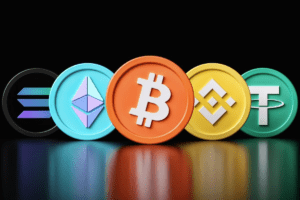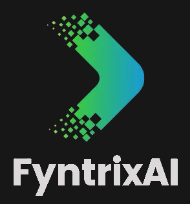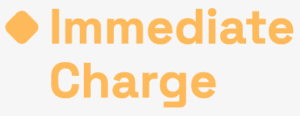Introduction to Solana and Blockchain Consensus
In the world of blockchain technology, Solana has emerged as a prominent platform known for its scalability and high-speed transactions. To understand the significance of Solana validators, it is essential to first grasp the basics of Solana and the importance of consensus in blockchain technology.
Understanding Solana
Solana is a decentralized blockchain platform designed to enable fast and secure transactions. It employs a unique combination of technologies to achieve high scalability and low transaction costs. Solana utilizes a proof-of-stake (PoS) consensus mechanism, where validators play a crucial role in securing the network and validating transactions. This enables Solana to process thousands of transactions per second, making it one of the fastest blockchain networks available.
To explore more about the technical aspects and features of Solana, you can refer to the Solana whitepaper and learn about its tokenomics, scalability, and ecosystem.
The Importance of Consensus in Blockchain Technology
Consensus is a fundamental concept in blockchain technology, ensuring that all participants of the network agree on the validity of transactions. It is crucial for maintaining the integrity and security of the blockchain. Without consensus, the decentralized nature of blockchain networks would be compromised, making them vulnerable to attacks and manipulation.
In Solana, consensus is achieved through a PoS mechanism, where validators are responsible for confirming the validity of transactions and maintaining the overall network consensus. Validators play a pivotal role in ensuring that the transactions added to the blockchain are accurate and in compliance with the network’s rules.
By participating in the consensus process, Solana validators contribute to the decentralization and security of the network. Their efforts help to ensure that the blockchain operates smoothly, while also enabling the growth and adoption of Solana as a robust blockchain platform.
In the next sections, we will dive deeper into the role, selection process, responsibilities, benefits, and challenges faced by Solana validators. Stay tuned to learn more about the fascinating world of Solana validators and their impact on the blockchain ecosystem.
What are Validators in Solana?
In the Solana blockchain network, validators play a crucial role in maintaining the integrity and security of the system. They are responsible for validating transactions, reaching consensus on the state of the blockchain, and ensuring the overall stability of the network. Let’s explore the role of validators in the Solana blockchain and how they contribute to consensus.
Role of Validators in Solana Blockchain
Validators in the Solana blockchain network are responsible for verifying and validating transactions. They ensure that each transaction meets the predefined rules and requirements, such as sufficient funds and proper formatting. By validating transactions, validators help prevent fraudulent or malicious activities from being added to the blockchain.
In addition to transaction validation, validators also participate in the consensus protocol of the Solana blockchain. The consensus protocol ensures that all validators agree on the state of the blockchain, including the order in which transactions are added to the ledger. Validators contribute to the consensus process by proposing and voting on the validity of blocks and transactions. Their involvement ensures that the blockchain remains decentralized and resistant to attacks.
How Validators Contribute to Consensus
Validators contribute to the consensus in the Solana blockchain through a process known as Proof of History (PoH). PoH provides a verifiable and auditable sequence of events, allowing validators to agree on the order of transactions without the need for constant communication. This unique approach to consensus enables Solana to achieve high throughput and scalability.
Validators in Solana use their computational power and network bandwidth to participate in block production and validation. They compete to produce the next block in the blockchain by solving cryptographic puzzles. The validator that successfully solves the puzzle adds the block to the chain, and other validators confirm its validity. This process ensures that only valid and agreed-upon transactions are added to the blockchain.
By actively participating in the consensus process, validators secure the Solana network against potential attacks and maintain the integrity of the blockchain. Their contributions are vital to the overall stability and reliability of the Solana ecosystem.
To learn more about Solana and its ecosystem, check out our article on solana ecosystem.
Validator Selection Process
In the Solana blockchain network, validators play a critical role in maintaining the integrity and security of the network. The selection process for becoming a validator involves staking and delegating SOL tokens and meeting certain criteria.
Staking and Delegating in Solana
To become a validator in Solana, individuals or entities need to stake SOL tokens. Staking involves locking up a certain amount of SOL tokens as collateral to demonstrate commitment and dedication to the network. By staking SOL tokens, validators contribute to the security and stability of the Solana blockchain.
Validators can also choose to delegate their staked SOL tokens to other validators they trust. Delegating allows validators to participate in the consensus process and earn rewards without running their own infrastructure. Delegation is a way for validators to support and contribute to the network while minimizing the technical requirements and operational challenges.
Criteria for Becoming a Validator
Becoming a validator in Solana requires meeting certain criteria set by the network. These criteria typically include:
-
Minimum Staking Requirement: Validators are usually required to stake a minimum amount of SOL tokens to be eligible for selection. The specific minimum requirement may vary and can be influenced by factors such as network demand and tokenomics. For more information on Solana tokenomics, refer to our article on solana tokenomics.
-
Technical Competence: Validators should possess the necessary technical knowledge and expertise to operate and maintain a Solana node. This includes understanding the underlying blockchain technology, network protocols, and the Solana consensus mechanism. Technical requirements can include hardware specifications, network connectivity, and software configuration.
-
Reliability and Uptime: Validators are expected to maintain a high level of reliability and ensure their nodes are consistently online. This is crucial for the network’s stability and resilience. Validators should have robust infrastructure, redundancy measures, and monitoring systems in place to minimize downtime.
-
Security Measures: Validators must implement appropriate security measures to protect their nodes and the network from potential attacks. This includes maintaining secure access controls, regularly updating software, and following best practices in cybersecurity. Validators should be aware of the latest security threats and take necessary precautions to safeguard the Solana network.
By meeting these criteria and actively participating as validators, individuals and entities can contribute to the growth and decentralization of the Solana ecosystem. Validators play a crucial role in maintaining consensus, securing the network, and ensuring the overall stability and reliability of Solana’s blockchain infrastructure.
In the next section, we will explore the responsibilities that Solana validators undertake as part of their role in maintaining consensus and securing the network.
Responsibilities of Solana Validators
Solana validators play a crucial role in the Solana blockchain network, contributing to the validation of transactions and the overall maintenance of consensus. Let’s explore the responsibilities of these validators in more detail.
Validating Transactions and Maintaining Consensus
One of the primary responsibilities of Solana validators is to validate transactions that occur on the Solana blockchain. Validators examine the transactions submitted by users and verify their accuracy and legitimacy. They ensure that the transactions adhere to the rules and protocols defined by the Solana network.
Validators also play a vital role in maintaining consensus within the Solana blockchain. Consensus refers to the agreement among network participants on the order and validity of transactions. Validators utilize their computational power to reach a consensus on the state of the blockchain and ensure that all nodes are in agreement.
To achieve consensus, Solana validators participate in a process called Proof of History (PoH). PoH provides a verifiable and trusted sequence of events, allowing validators to arrive at a consensus without relying on traditional consensus mechanisms, such as Proof of Work (PoW) or Proof of Stake (PoS). This innovative approach enables Solana to achieve high transaction throughput and scalability.
Securing the Solana Network
In addition to validating transactions and maintaining consensus, Solana validators also play a crucial role in securing the Solana network. Validators help protect the network from potential attacks and ensure its stability and reliability.
Validators are responsible for keeping their nodes up and running, maintaining the necessary infrastructure, and ensuring that their nodes are properly configured and secure. They must stay vigilant and promptly address any potential security vulnerabilities or operational issues that may arise.
By actively participating in the Solana network, validators contribute to the overall security and resilience of the blockchain. Their commitment to maintaining a robust network ensures that users can trust the Solana ecosystem for their transactions and interactions.
Solana validators embrace the responsibility of validating transactions, maintaining consensus, and securing the network, thus playing a pivotal role in the success of the Solana blockchain. Their efforts contribute to the growth and development of the Solana ecosystem, providing users with a reliable and efficient platform for various decentralized applications and services.
Benefits of Solana Validators
Validators play a crucial role in the Solana blockchain ecosystem, contributing to the security, stability, and growth of the network. By actively participating in the validation process, validators can enjoy several benefits and incentives while supporting the Solana network.
Rewards and Incentives for Validators
One of the primary benefits of being a Solana validator is the opportunity to earn rewards and incentives. Validators are rewarded for their contributions to the network, such as validating transactions and maintaining consensus. These rewards are typically in the form of newly minted Solana tokens, which validators receive as a result of successfully participating in the consensus process.
The reward distribution mechanism in Solana is designed to encourage active participation and maintain network security. Validators are incentivized to act honestly and perform their duties diligently. The more Solana tokens a validator holds, the higher their potential rewards. Validators can choose to stake their earned tokens, increasing their chances of being selected as a validator and earning additional rewards.
To learn more about the tokenomics and rewards system of Solana, you can refer to our article on Solana tokenomics.
Contributing to the Growth of Solana Ecosystem
By becoming a Solana validator, individuals have the opportunity to contribute to the growth and development of the Solana ecosystem. Validators play a vital role in ensuring the security and reliability of the network, which is crucial for attracting more participants and fostering trust in the system.
Validators actively participate in the consensus process, validating transactions, and ensuring the accuracy and integrity of the blockchain. Their efforts contribute to the overall efficiency and scalability of the Solana network. As Solana continues to gain popularity and adoption, validators can take pride in being instrumental in the success of this innovative blockchain platform.
Furthermore, validators can actively engage with the Solana community, sharing knowledge, insights, and experiences. They can contribute to the ongoing development of the Solana ecosystem by providing feedback, suggesting improvements, and collaborating with other participants. This collaborative approach helps in building a robust and thriving ecosystem around Solana.
By exploring the benefits of being a Solana validator, individuals can gain a deeper understanding of the opportunities and rewards associated with participating in the Solana network. Validators not only have the chance to earn rewards but also contribute to the growth and success of a groundbreaking blockchain platform like Solana.
Challenges and Considerations for Validators
Validators in the Solana network play a crucial role in maintaining the integrity and security of the blockchain. However, becoming a validator comes with its own set of challenges and considerations. In this section, we will explore some of the key challenges that validators may encounter and the considerations they need to keep in mind.
Technical Requirements and Infrastructure
Being a Solana validator requires a certain level of technical expertise and infrastructure. Validators need to have the necessary hardware, such as high-performance servers and reliable internet connections, to ensure uninterrupted participation in the network. The Solana protocol is designed to handle high transaction volumes, so validators must have the capacity to process a significant number of transactions efficiently.
In addition to hardware considerations, validators should also stay updated with the latest software releases and network upgrades. Keeping their systems up to date helps ensure compatibility with the Solana network and allows them to take advantage of new features and improvements. Regularly monitoring and maintaining the technical infrastructure is essential to ensure optimal performance as a validator.
Security and Operational Challenges
Validators must prioritize the security of their nodes and the Solana network as a whole. They need to implement robust security measures to protect against potential attacks, such as Distributed Denial of Service (DDoS) attacks or attempts to compromise their private keys. Validators should follow best practices for securing their infrastructure, including using strong passwords, enabling encryption, and regularly backing up their data.
Operational challenges can also arise for validators. They need to monitor their nodes and network connectivity to ensure they are consistently online and participating in the consensus process. Validators should be prepared to handle any potential issues promptly, such as hardware failures or network disruptions, to minimize downtime and maintain the stability of the Solana network.
Maintaining a high level of uptime is essential for validators to continue earning rewards and contributing to the security of the network. Validators should have contingency plans in place to address any operational challenges and ensure the smooth operation of their nodes.
By understanding and addressing these challenges, validators can navigate the complexities of the Solana network more effectively. It is important for validators to stay informed about the latest developments, upgrades, and security best practices to ensure the successful operation of their nodes and contribute to the growth and decentralization of the Solana ecosystem.






